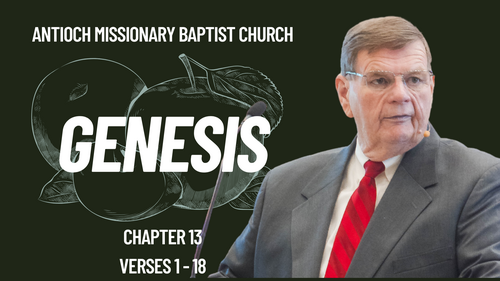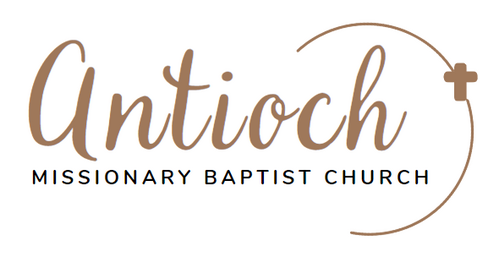Sermon Takeaway 08/31/2025

Living by Faith: Lessons from Abraham and Lot

In the rich tapestry of biblical narratives, few stories offer as much insight into the nature of faith and human choices as the account of Abraham and Lot. Their journeys, intertwined yet divergent, provide a compelling illustration of the stark contrast between a life guided by spiritual principles and one driven by worldly desires.
The story begins with a return - a theme that resonates deeply with anyone who has ever strayed from their spiritual path. Abraham, having ventured into Egypt during a time of famine, comes back to Canaan, the land promised to him by God. This act of returning is more than just a physical journey; it's a spiritual recommitment. It reminds us that no matter how far we may wander, the path back to God is always open.
Upon his return, Abraham's first action is deeply significant. He goes back to Bethel, which means "house of God," to the very altar he had built before. There, he calls upon the name of the Lord. This poignant moment teaches us a vital lesson: when we seek to reconnect with God, we must return to the place where we last felt His presence strongly. It's an invitation to revisit our spiritual foundations, to rekindle the flame of devotion that may have dimmed during our wanderings.
Upon his return, Abraham's first action is deeply significant. He goes back to Bethel, which means "house of God," to the very altar he had built before. There, he calls upon the name of the Lord. This poignant moment teaches us a vital lesson: when we seek to reconnect with God, we must return to the place where we last felt His presence strongly. It's an invitation to revisit our spiritual foundations, to rekindle the flame of devotion that may have dimmed during our wanderings.
The narrative then introduces a conflict - a dispute between the herdsmen of Abraham and Lot over resources. This seemingly mundane disagreement serves as a catalyst for revealing the true nature of both men's hearts. Abraham's response to this situation is nothing short of remarkable. He offers Lot the first choice of land, demonstrating a spirit of generosity and faith that sets him apart.
In this pivotal moment, we see the stark contrast between living by faith and living by sight. Lot, described as a righteous man but one governed by his fleshly desires, lifts his eyes and chooses what appears to be the best land - the well-watered plain of Jordan, likened to the garden of Eden. His decision is based solely on what he can see and what he believes will bring him the most prosperity.
Abraham, on the other hand, allows Lot to choose first, trusting that God's promises to him will be fulfilled regardless of which portion of land he receives. This act of faith is immediately rewarded. God renews His covenant with Abraham, promising him descendants as numerous as the dust of the earth and reaffirming that all the land, as far as he can see in every direction, will belong to him and his offspring forever.
This moment in the story challenges us to examine our own decision-making process. How often do we, like Lot, make choices based solely on what seems most beneficial or appealing in the immediate future? And how often do we, like Abraham, step back and allow faith to guide our decisions, trusting that God's plans for us are greater than what we can see or imagine?
In this pivotal moment, we see the stark contrast between living by faith and living by sight. Lot, described as a righteous man but one governed by his fleshly desires, lifts his eyes and chooses what appears to be the best land - the well-watered plain of Jordan, likened to the garden of Eden. His decision is based solely on what he can see and what he believes will bring him the most prosperity.
Abraham, on the other hand, allows Lot to choose first, trusting that God's promises to him will be fulfilled regardless of which portion of land he receives. This act of faith is immediately rewarded. God renews His covenant with Abraham, promising him descendants as numerous as the dust of the earth and reaffirming that all the land, as far as he can see in every direction, will belong to him and his offspring forever.
This moment in the story challenges us to examine our own decision-making process. How often do we, like Lot, make choices based solely on what seems most beneficial or appealing in the immediate future? And how often do we, like Abraham, step back and allow faith to guide our decisions, trusting that God's plans for us are greater than what we can see or imagine?
The consequences of these choices quickly become apparent. Lot, having chosen to settle near Sodom, a city known for its wickedness, gradually moves closer to it until he's living within its walls. This progression serves as a stark warning about the dangers of compromising our values for worldly gain. It reminds us that small steps away from our spiritual center can lead us into situations we never intended to be in.
Abraham, in contrast, settles in Hebron and builds another altar to the Lord. This act of worship demonstrates his continued commitment to putting God at the center of his life, regardless of his circumstances. It's a powerful reminder that true prosperity isn't measured by material wealth or societal status, but by the depth of our relationship with God.
Abraham, in contrast, settles in Hebron and builds another altar to the Lord. This act of worship demonstrates his continued commitment to putting God at the center of his life, regardless of his circumstances. It's a powerful reminder that true prosperity isn't measured by material wealth or societal status, but by the depth of our relationship with God.
The story of Abraham and Lot invites us to reflect on the direction of our own lives. Are we, like Abraham, consistently moving towards a deeper faith and trust in God? Or are we, like Lot, allowing the allure of worldly success and comfort to draw us away from our spiritual foundations?
It's important to note that neither Abraham nor Lot was perfect. The Bible doesn't shy away from showing their flaws and mistakes. Abraham, despite his great faith, would later falter in his trust, leading to complicated situations with his wife Sarah. Lot, despite being described as righteous, made choices that led him into dangerous and compromising situations.
This honesty in portraying these biblical figures offers us comfort and hope. It reminds us that living a life of faith isn't about achieving perfection, but about the overall direction of our lives. It's about consistently turning back to God, even after we've made mistakes.
It's important to note that neither Abraham nor Lot was perfect. The Bible doesn't shy away from showing their flaws and mistakes. Abraham, despite his great faith, would later falter in his trust, leading to complicated situations with his wife Sarah. Lot, despite being described as righteous, made choices that led him into dangerous and compromising situations.
This honesty in portraying these biblical figures offers us comfort and hope. It reminds us that living a life of faith isn't about achieving perfection, but about the overall direction of our lives. It's about consistently turning back to God, even after we've made mistakes.
The story also challenges our understanding of prosperity and blessing. In a world that often equates success with material wealth and visible achievements, Abraham's choices seem counterintuitive. He gives away what appears to be the best land, trusts in promises that seem impossible to fulfill (given his and Sarah's advanced age), and consistently prioritizes his relationship with God over worldly gain.
Yet, in God's economy, Abraham is the one who truly prospers. His prosperity isn't measured in flocks or land, but in his intimate relationship with God and the lasting impact of his faithfulness. This challenges us to reconsider what true success and blessing look like in our own lives.
Yet, in God's economy, Abraham is the one who truly prospers. His prosperity isn't measured in flocks or land, but in his intimate relationship with God and the lasting impact of his faithfulness. This challenges us to reconsider what true success and blessing look like in our own lives.
As we reflect on this ancient yet timeless story, we're invited to examine our own hearts and choices. Are we living by faith or by sight? Are our decisions guided by trust in God's promises or by what seems most immediately beneficial? Are we building altars - dedicating our lives to God - or are we pitching our tents towards Sodom - compromising our values for worldly gain?
The story of Abraham and Lot reminds us that every day, we face choices that shape the direction of our lives. It encourages us to choose faith over fear, trust over self-reliance, and spiritual richness over material wealth. It calls us to be people who, like Abraham, are willing to live by faith, even when the path ahead is uncertain.
The story of Abraham and Lot reminds us that every day, we face choices that shape the direction of our lives. It encourages us to choose faith over fear, trust over self-reliance, and spiritual richness over material wealth. It calls us to be people who, like Abraham, are willing to live by faith, even when the path ahead is uncertain.
In a world that often prioritizes immediate gratification and visible success, may we have the courage to choose the path of faith. May we build our altars, trust in God's promises, and live lives that point others towards the true source of lasting fulfillment and peace.
Watch the full sermon here:
Recent Takeaways
Archive
2026
2025
March
September
October
November

No Comments